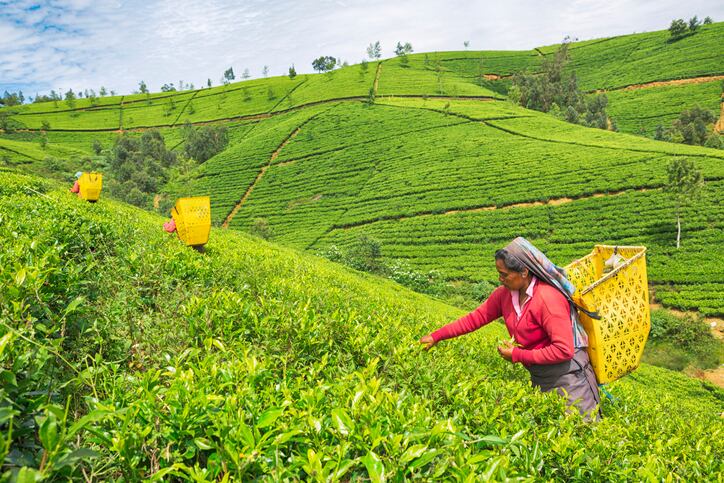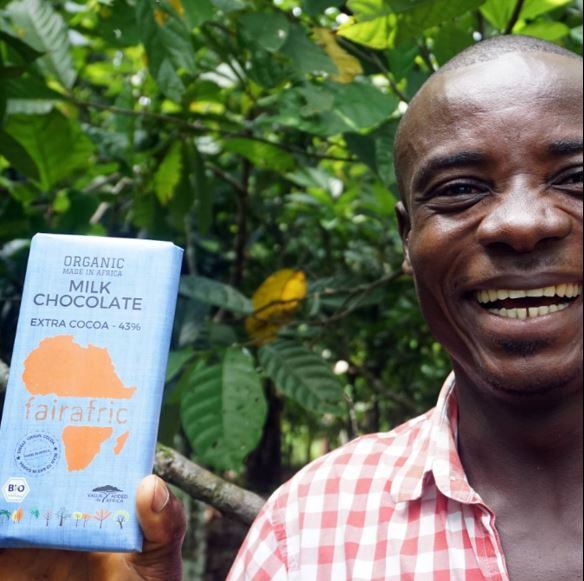Results from 18 interviews with key stakeholders of retailers, grocery brands and industry bodies have informed the Fairtrade Foundation’s ‘Competition Law and Sustainability: A Study of Industry Attitudes Towards Multi-Stakeholder Collaboration in the UK Grocery Sector’ report, published today (25 January).
According to the research, almost all businesses perceive competition law a stumbling block to achieving sustainability goals, including increasing farm-gate prices and wages.
While competition law helps to protect consumers from certain harmful practices, such as price-fixing, it does not allow for collaboration between competitors regarding prices paid to farmers, or wages paid to workers, the Foundation explained.
By working together, retailers and traders can respond to public demands and significantly, “they don’t have to act alone,” said Fairtrade Foundation CEO Michael Gidney in a statement.
“However, the UK will not be able to do its bit to end global poverty and achieve the sustainable development goals unless everyone works together.
“It is time for reform and for the Government and the CMA to step up and unblock these barriers.”
Power play
The Foundation flagged low incomes and extreme poverty as major sustainability issues within the agricultural supply chain.
“The issue of poverty in the agricultural sector is inextricably linked to the amount that producers are paid for their product,” wrote the Foundation, which associated low prices with a power imbalance between retailers, traders, and farmers.

“The buying power of retailers and traders puts farmers under a great deal of pressure to sell at low prices.
“This power imbalance can be exacerbated by a lack of pricing data, which affect the ability of producers to plan and demand a fairer price for what they grow,” the Foundation continued. While a collaborative effort is required to address this imbalance, including participation from policymakers, regulators, and civil society, retailers and traders "hold the most power to deliver meaningful change."
A call to competition watchdog
The Fairtrade Foundation has appealed to competition watchdog, the Competition and Markets Authority (CMA). Providing clear guidance to private sector companies that allows for a collaborative approach will help improve the incomes of farmers and employees in developing countries, according to Fairtrade.
“Millions of the farmers and workers behind some of our favourite groceries – tea, cocoa, bananas - are at the sharp end of trade, struggling with volatile commodity prices and the worsening effects of climate change.
“We’re calling on the government to seize this appetite for collaboration from the sector and encourage the largest players in retail to address the most pressing issue affecting our supply chains - poverty prices,” said Gidney.
Recommendations
- The UK government should consider the long-term environmental and social sustainability of supply chains alongside short-term consumer interest when reviewing how well markets are functioning.
- The UK government should update its Strategic Steer to the Competition and Markets Authority (CMA) it that it should work to facilitate markets that are sustainable in the long-term
- The CMA should issue clearer communications to companies and retailers on how businesses can collaborate for sustainability purposes in order to address low farm-gate prices in a manner that would be consistent with competition law.
- We continue to ask that the CMA regularly report on how its assessment of competition law is affecting progress towards the Sustainability Development Goals and UN Guiding Principles on Human Rights.
- Fairtrade Foundation
The CMA has had some engagement with the Fairtrade Foundation on some of the issues in the report, a CMA spokesperson told FoodNavigator.
“We would welcome evidence and specific examples demonstrating the concerns they have about the impact of competition law,” the spokesperson added.




